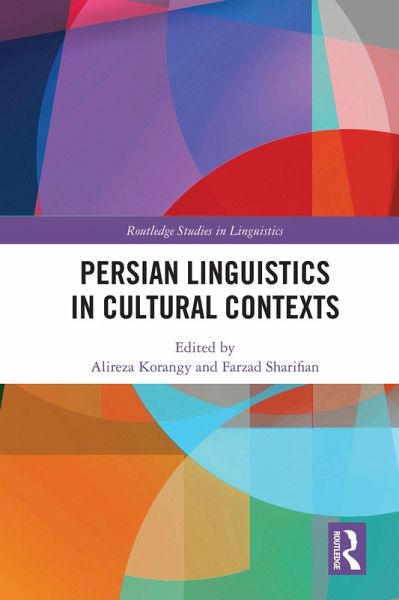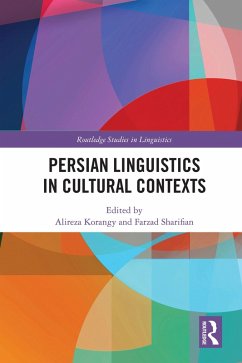
Persian Linguistics in Cultural Contexts (eBook, PDF)
Versandkostenfrei!
Sofort per Download lieferbar
51,95 €
inkl. MwSt.
Weitere Ausgaben:

PAYBACK Punkte
26 °P sammeln!
Korangy and Sharifian's groundbreaking book offers the first in-depth study into cultural linguistics for the Persian language. The book highlights a multitude of angles through which the intricacies of Persian and its many dialects and accents, wherever spoken, can be examined. Linguistics with cultural studies as its backdrop is not a new phenomenon; however, with this text we are afforded an insight into the complex relationship that exists between human cognizance and human expression in this ancient civilization. This study helps develop an innovative understanding of history, intent, and...
Korangy and Sharifian's groundbreaking book offers the first in-depth study into cultural linguistics for the Persian language. The book highlights a multitude of angles through which the intricacies of Persian and its many dialects and accents, wherever spoken, can be examined. Linguistics with cultural studies as its backdrop is not a new phenomenon; however, with this text we are afforded an insight into the complex relationship that exists between human cognizance and human expression in this ancient civilization. This study helps develop an innovative understanding of history, intent, and meaning as understood by a culture and by a people, in this case the Persian-speaking folk of Iran. The chapters are insightful resources for analyzing and augmenting our knowledge of linguistics under the rubric of Persian culture but also for proposing and foregrounding new ideas in this field of study.
Dieser Download kann aus rechtlichen Gründen nur mit Rechnungsadresse in A, B, BG, CY, CZ, D, DK, EW, E, FIN, F, GR, HR, H, IRL, I, LT, L, LR, M, NL, PL, P, R, S, SLO, SK ausgeliefert werden.












